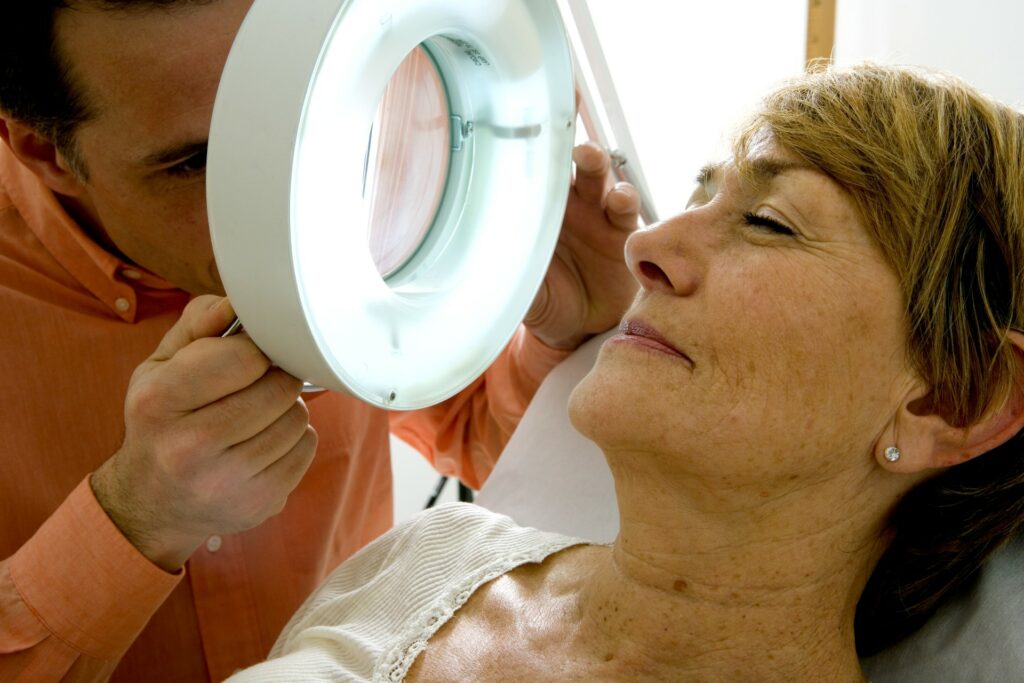The Surprising Link Between Dermatology and Your Overall Health

Dermatology is a field of medicine focused on diagnosing and treating skin conditions. However, the skin is not just an external organ; it is also a reflection of what is going on inside your body. This means that skin conditions can often be a sign of deeper underlying health issues. Therefore, it is important to pay attention to the health of your skin as well as the health of your body as a whole. In this article, we explore the surprising link between dermatology and your overall health and provide you with the crucial information you need to know.
How Dermatology Impacts Your Overall Health
Dermatology can significantly impact on your overall health. That’s because the skin serves as the body’s protective barrier, and any issues with it can lead to infections or other serious health concerns. Additionally, many skin conditions are related to underlying health problems. Here are some ways in which dermatology can impact your overall health:
Skin cancer: Most skin cancer is often caused by exposure to ultraviolet radiation, but it can also indicate a weakened immune system. Regular skin exams can help detect skin cancer early when it’s most treatable.
Immune system disorders: Some skin conditions, such as psoriasis and eczema, are linked to problems with the immune system. In some cases, these conditions can be a sign of other autoimmune disorders throughout the body.
Nutritional deficiencies: Nutritional deficiencies can lead to problems with the skin, such as dryness or rashes. Dermatologists can help identify any deficiencies and provide advice on how to address them.
Stress: Stress can impact many areas of the body, including the skin. Conditions such as acne and rosacea can be exacerbated by stress.
Medications: Medications can have side effects that impact the skin, such as rashes or increased sensitivity to the sun. Dermatologists can help identify these side effects and provide recommendations for managing them.
By paying attention to the health of your skin, you can also be more attentive to your overall health. If you notice any changes in your skin, it’s important to see a dermatologist to rule out any serious underlying health problems.
The Skin Reflects Internal Health
The skin is often referred to as a reflection of internal health. Poor health condition and nutritional deficiencies can all manifest themselves in various forms through the skin. Dermatologists play a crucial role in understanding the body’s internal health by examining the skin. Here are the four most common internal health concerns that reveal themselves in skin health:
- Inflammation: Inflammation is often a response by the body to stress, infection, or injury. Chronic inflammation can cause skin breakouts or hives. Dermatologists can determine whether the skin inflammation is due to an internal problem.
- Dehydration: When a body is dehydrated, skin becomes dry and flaky. This is because dehydration prevents the skin from retaining moisture. It is important to drink adequate amounts of water every day to prevent skin dehydration.
- Hormonal imbalances: Hormonal changes can have a significant impact on the skin. Women tend to experience acne and dryness during their menstrual cycle. Hormonal imbalances can also lead to conditions like polycystic ovary syndrome (PCOS), which leads to excessive hair growth and hair loss.
- Liver problems: The liver’s job is to filter toxins out of the body – when it is not functioning properly, toxins can accumulate in the body and cause skin problems like yellowing, itching, and rashes. Dermatologists can identify these symptoms and refer patients to a specialist for additional tests.
How to Assess Your Own Skin’s Health
As mentioned earlier, the skin can reflect internal health. Dermatologists can help identify health problems by examining your skin, but there are also ways to assess your skin’s health on your own. If your skin changes texture, or color, is extremely dry, oily, or experiencing breakouts, it is time to check with a local dermatologist for a complete skin assessment. Moles and other skin concerns should be seen by a reputable and experienced licensed dermatologist. Skin cancer affects 1 in 5 Americans but is treatable when detected early. Buckhead Dermatology has provided Atlanta clients with excellent skin cancer screenings and treatments for over 25 years.
By regularly assessing your skin’s health, you can catch any potential issues early and seek treatment or make lifestyle changes to improve your overall health. If you experience persistent skin problems or notice sudden changes in your skin’s appearance, it is always best to consult a dermatologist.
